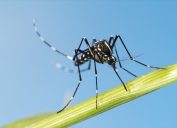7 Things Bringing Scorpions Into Your Home
These common habits could be inviting these pests into your space without you even realizing it.
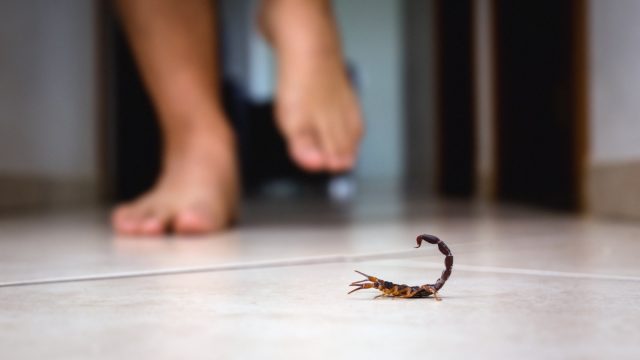
There are few pests that cause quite the level of paralyzing fear as scorpions—and with good reason. Globally, nearly 1.2 million people are stung by scorpions each year, resulting in approximately 3,250 total deaths. In the U.S., approximately 1,700 scorpion encounters are reported to poison control centers anually, with approximately 9 percent of those who encounter these arachnids requiring medical care. However, it's not just out in the wild where you may find yourself running into a scorpion—read on to discover how you could be accidentally inviting scorpions into your home.
RELATED: This Is the No. 1 Sign There's a Snake in Your House, Experts Say.
1
Shoes left outside
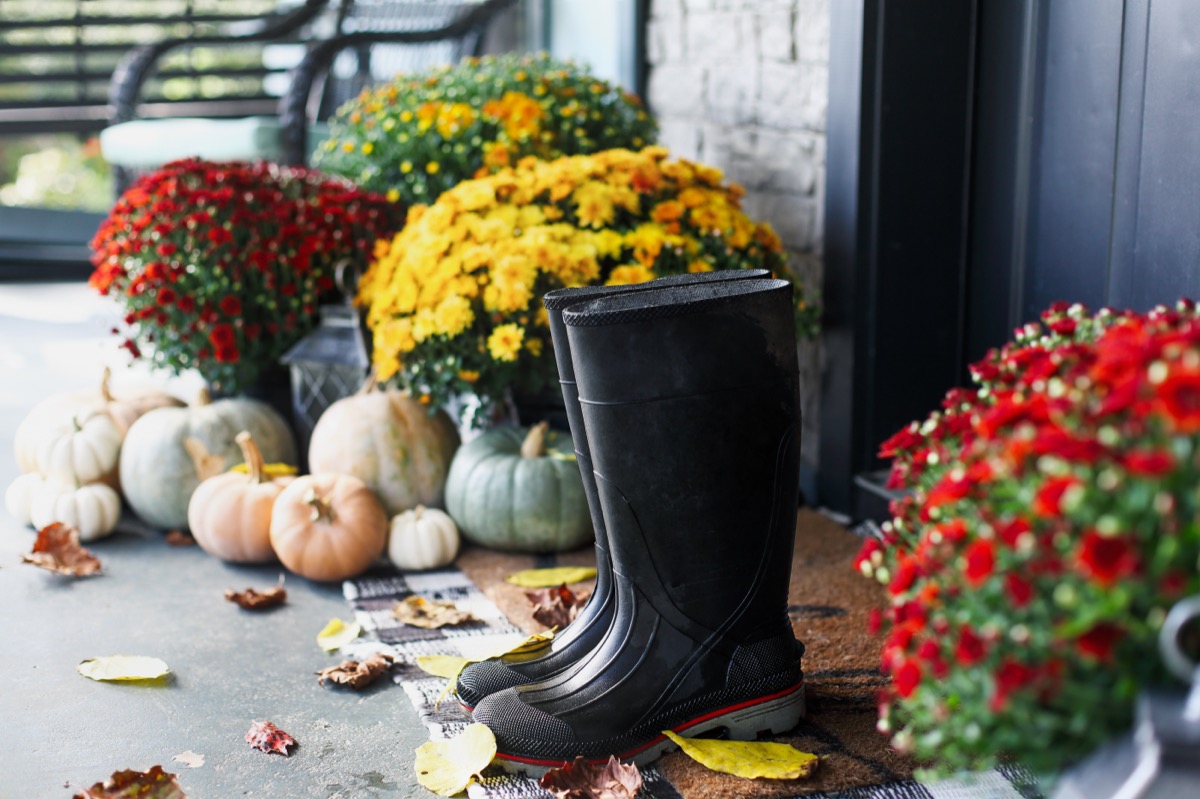
While leaving your shoes outdoors to dry off after wet weather may keep your home cleaner, it can also mean you're making it easy for scorpions to invade your space.
"You left your boots on the porch and scorpions could be hiding there," says Eric Sebring, an associate certified entomologist with Western Exterminator. When you bring those boots inside, you could be bringing a scorpion in with you.
For more home safety tips delivered straight to your inbox, sign up for our daily newsletter!
2
Wood piles
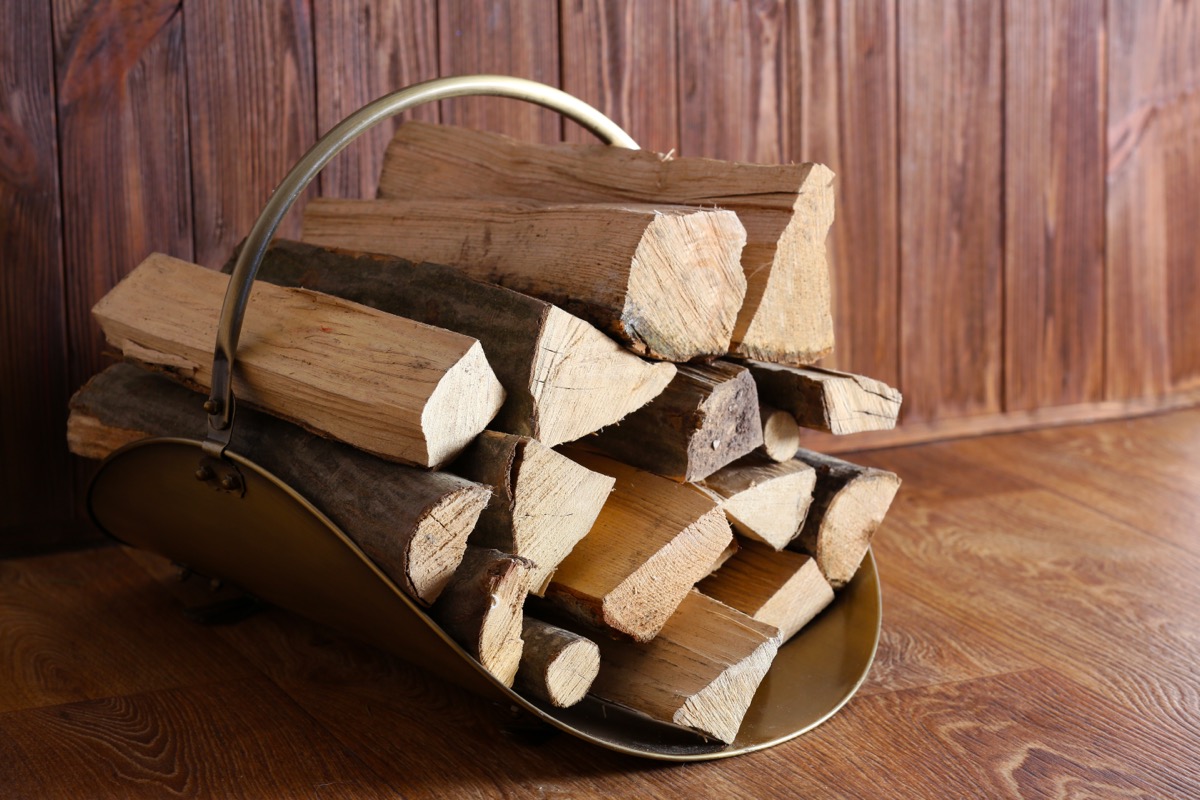
That wood pile may be necessary to keep your house warm, but if you're not inspecting it carefully, it could become a haven for scorpions.
Sebring explains that scorpions like to take shelter in places they can be covered, like wood piles, and when you bring those logs indoors, a scorpion could be hitching a ride.
3
Hanging vegetation
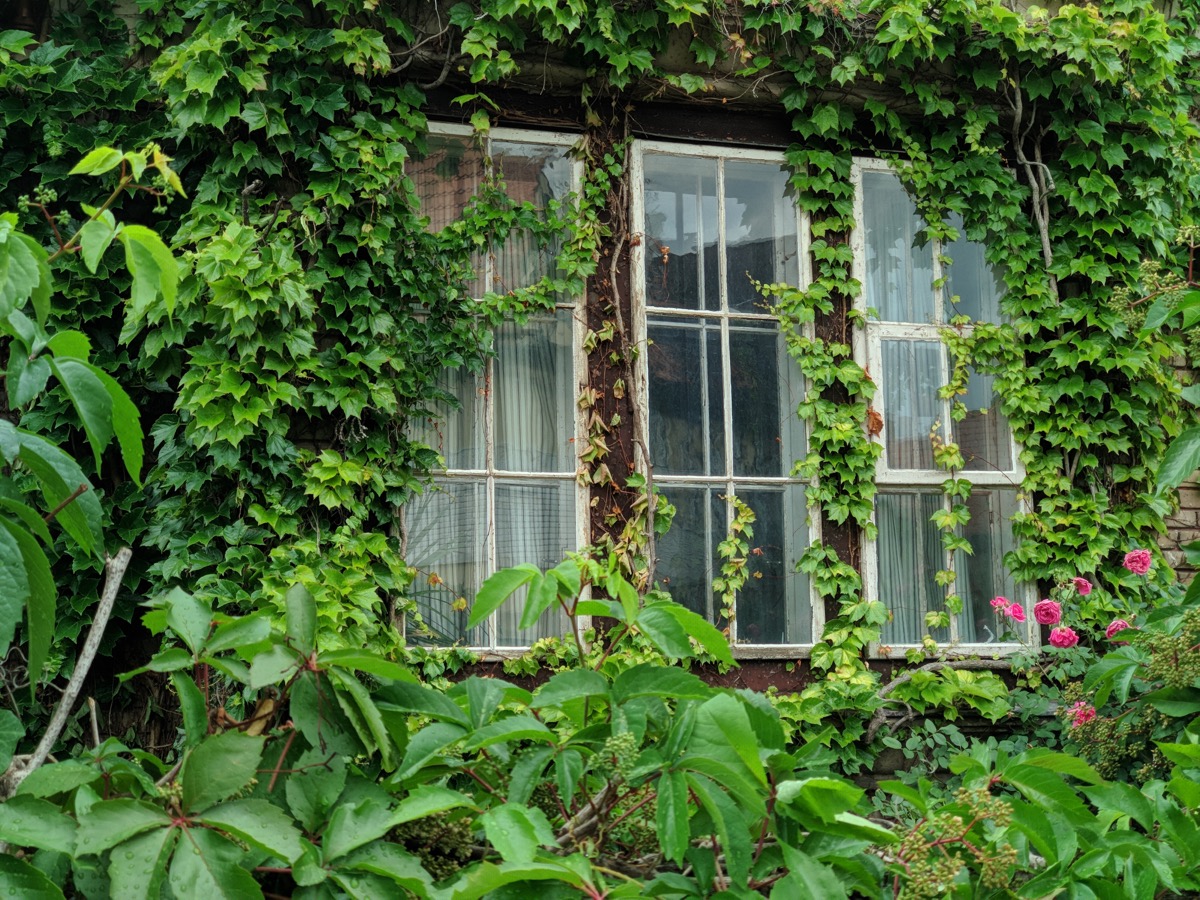
Whether you've got a tree with branches that graze your roof or ivy climbing up the side of your house, any vegetation that's adjacent to, or hanging from, your home can make it easy for scorpions to invade your space.
"Make sure to remove debris from around your home and trim vegetation and tree branches so they don't overhang," suggests Sebring.
4
Power tools
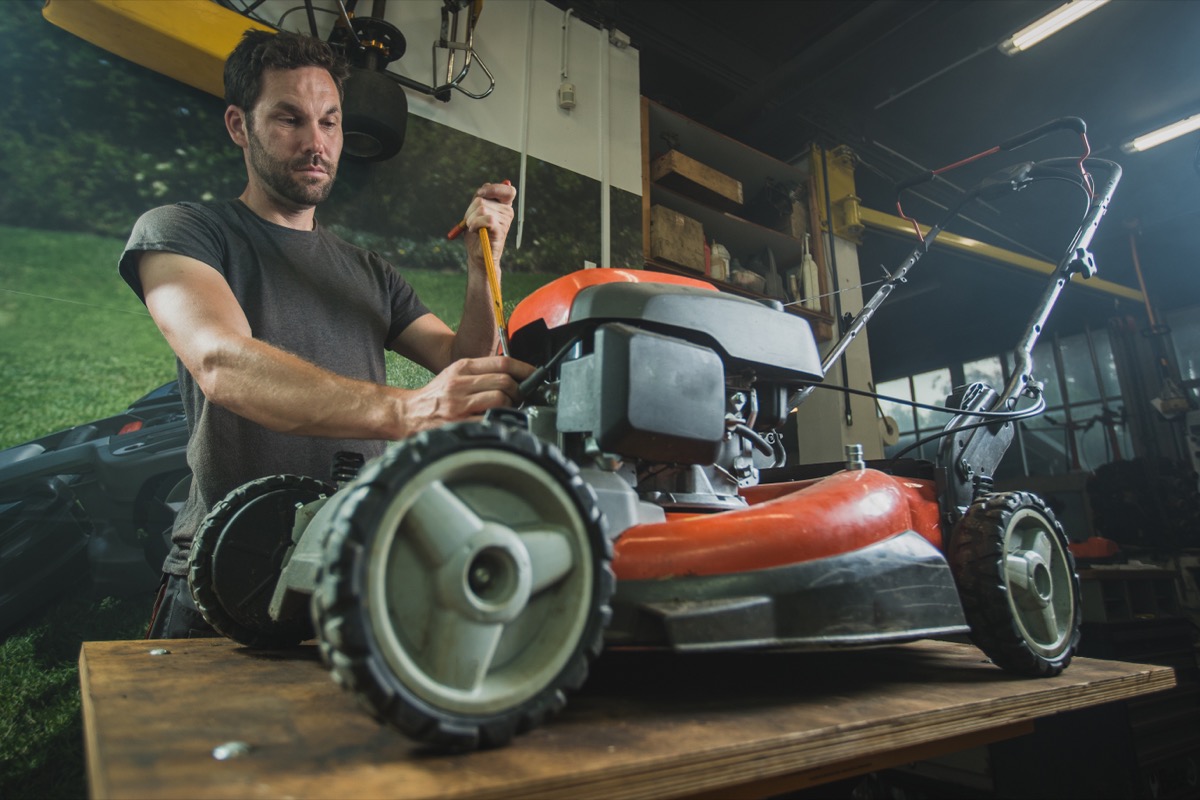
If you're storing your outdoor equipment, like lawn mowers or weed trimmers, in your basement during the winter, you may find that scorpions come inside with them.
Sebring explains that scorpions often hide under equipment that's left outdoors. Once it's brought inside, those pests are likely to enter your home, too.
5
Standing water
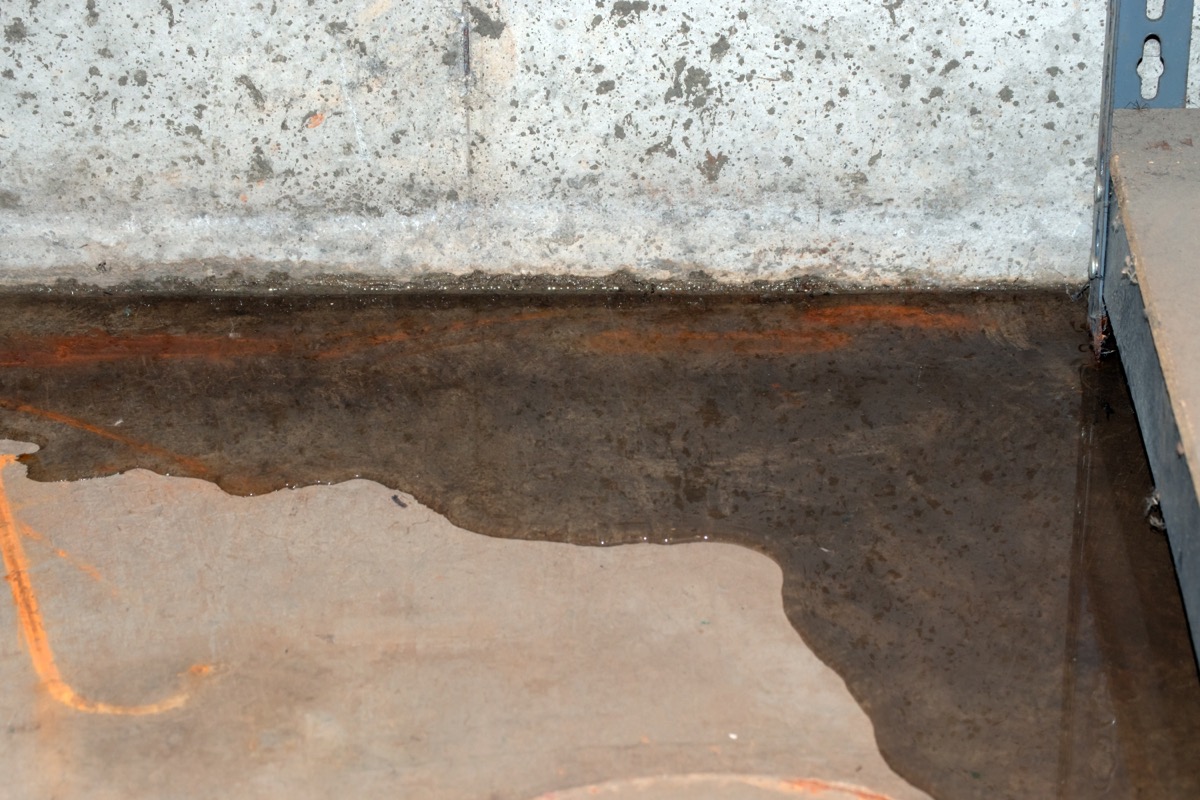
It's not just mold you may be contending with if you don't clean up standing water in your basement after a storm.
"Scorpions invade houses to find dark, damp places to hide, looking for shelter, water and food. Inside, basements with dark corners and cracks are places to look for scorpions because of the darkness and moisture," says exterminator and pest infestation specialist Jack Miller of How Do I Get Rid Of.
6
Compost containers
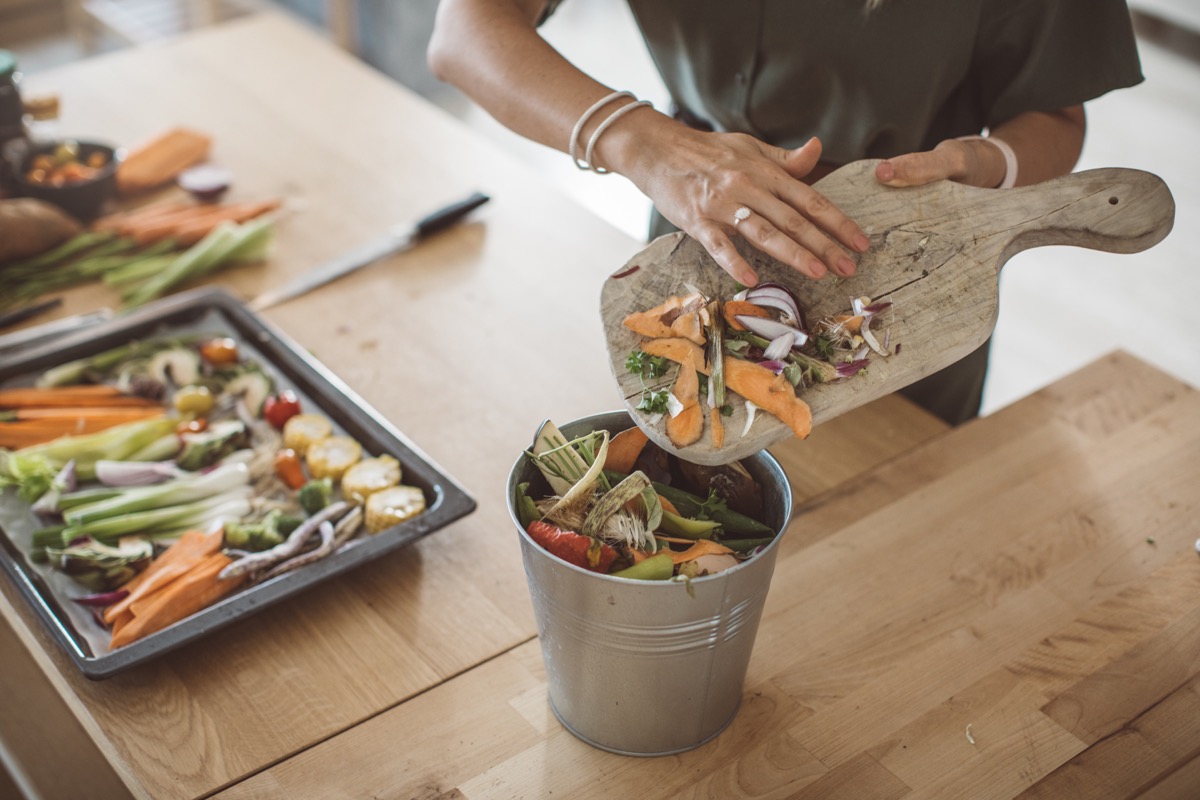
If you're using compost from your outdoor compost pile to feed your indoor plants, you could be providing easy access to your home for scorpions.
"Scorpions will hide outside in compost heaps," explains Miller. When you bring some of that soil indoors to feed your plants, you could be accidentally be bringing in these pests with you.
7
Pest infestations
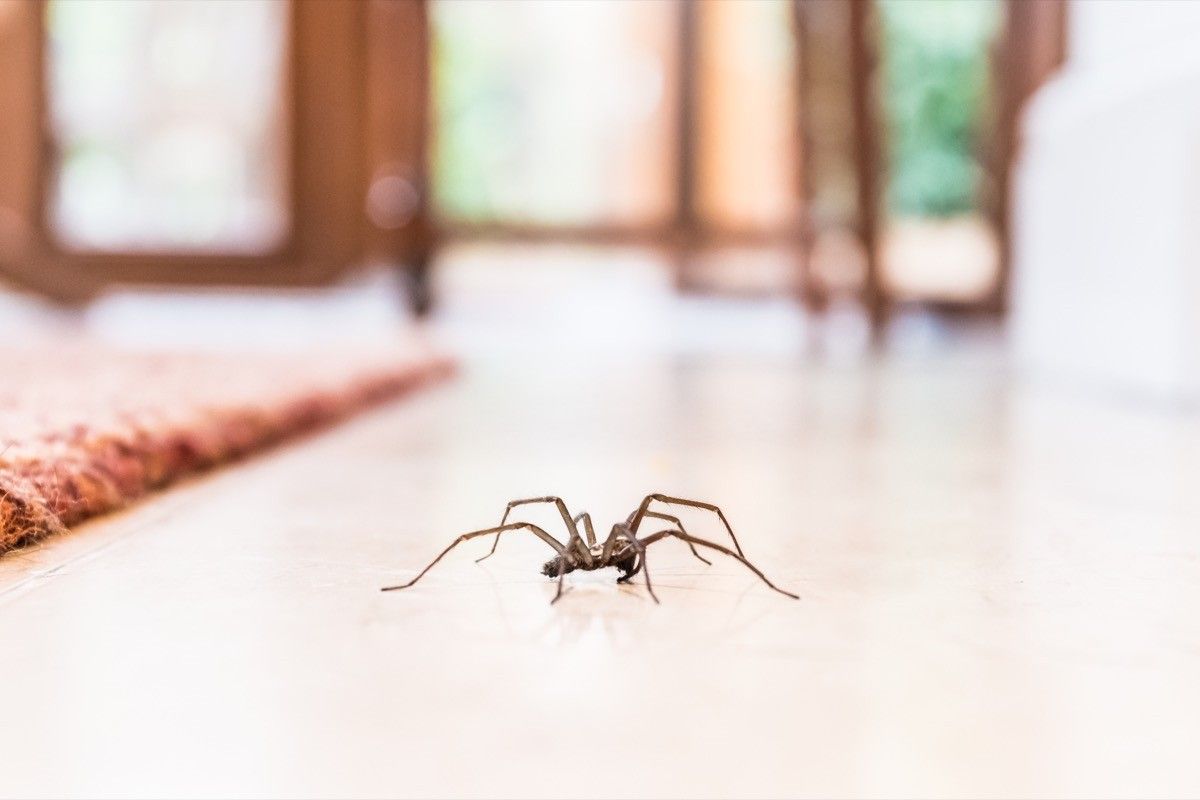
Scorpions are typically attracted to areas that have readily available food, meaning that a pest problem left unattended to could be making your home a prime target.
"Ants, flies, spiders, and other insects are all tasty food for scorpions, so having lots of these insects around the house will just invite scorpions," says Miller.
RELATED: If You Live Here, Prepare for an "Explosion of Pests," Experts Say.
